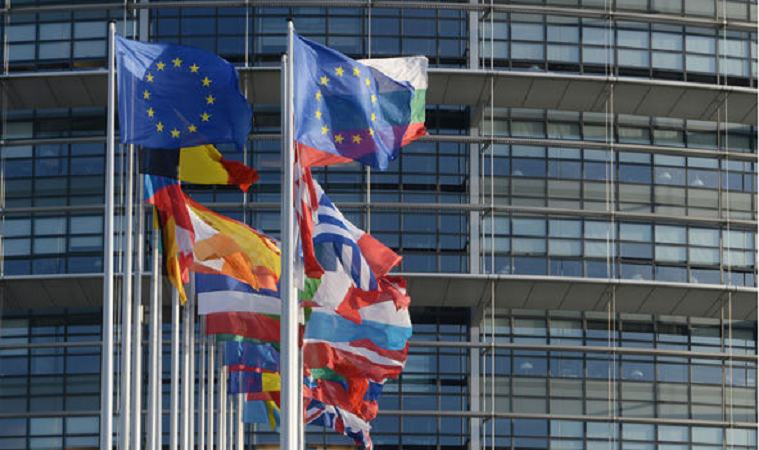
The European Union has drawn a clear line in its fraught trade negotiations with the United States, insisting it will not succumb to pressure to accept a skewed deal, even as the clock ticks down on a fragile tariff truce set to expire in early July.
European Commissioner for Trade and Economic Security, Maros Sefcovic, told lawmakers at the European Parliament on Tuesday that the EU would not agree to a trade arrangement that undermines its interests.
“We do not feel weak. We do not feel under undue pressure to accept a deal which would not be fair for us,” Sefcovic declared, making it clear that Brussels is not willing to be strong-armed into economic concessions.
Register for Tekedia Mini-MBA edition 19 (Feb 9 – May 2, 2026).
Register for Tekedia AI in Business Masterclass.
Join Tekedia Capital Syndicate and co-invest in great global startups.
Register for Tekedia AI Lab.
The standoff comes as the EU faces persistent U.S. tariffs of 25 percent on key exports, including steel, aluminum, and cars. A 90-day pause in trade penalties, meant to give both sides time to reach a compromise, is set to expire on July 8. Without a breakthrough, tariffs could jump further, triggering retaliation from the EU and escalating an already volatile transatlantic trade relationship.
Sefcovic hinted that talks with Washington, while ongoing, have hit roadblocks despite the EU putting “tested and forward-looking” proposals on the table. “It’s not easy,” he said, acknowledging that the negotiations might ultimately collapse.
Europe Ready to Retaliate
The European Commission appears to be preparing for that scenario. Sefcovic said the bloc is “getting ready” to reintroduce rebalancing measures—retaliatory tariffs that were suspended as a goodwill gesture when talks resumed. He emphasized that such tariffs would only return if negotiations fail, but made clear that the EU would not sit idly by should the U.S. hike its levies unilaterally.
Moreover, Sefcovic signaled Brussels might revive its case against the U.S. at the World Trade Organization, calling the tariffs “simply unjust, unfair, and in total breach of international commercial law.” The EU has long criticized the U.S. approach as an act of economic aggression cloaked in the language of national security.
Looking Beyond Washington
While EU-U.S. trade tensions simmer, the bloc is actively deepening ties elsewhere, a move that could significantly alter the global trade map. Sefcovic stressed the need to tap into the “87 percent of global trade that does not involve the United States,” underscoring Europe’s drive to reduce its strategic dependency on Washington.
In recent months, the EU has sealed or advanced trade pacts with Mercosur, the UAE, and Canada—part of a broader push to diversify partnerships and de-risk its economic outlook. Trade officials say this shift is not simply about hedging against U.S. volatility, but also about building resilience amid rising protectionism and supply chain fragmentation.
China Steps In
Beijing, watching the transatlantic discord closely, has seized the moment to re-engage Europe with diplomatic overtures. On Tuesday, Chinese President Xi Jinping called for deeper EU-China cooperation, marking 50 years since diplomatic ties were established between the two powers.
Speaking through state media outlet Xinhua, Xi stressed mutual openness and dialogue as a path to “jointly safeguard fairness and justice” and oppose “unilateral bullying”—thinly veiled language aimed at Washington’s tariff-heavy trade doctrine under President Donald Trump.
Xi’s remarks omitted any direct mention of the United States, but they aligned with Beijing’s long-standing strategy to position Europe as a counterweight in global trade, particularly as China struggles to offset the impact of sweeping U.S. tariffs on its exports.
Chinese Foreign Ministry spokesperson Lin Jian confirmed that high-level dialogues between Beijing and Brussels are in the works. The agenda will span economic policy, green development, digitalization, and strategic cooperation. Beijing has also extended invitations to top EU leaders, including Council President Antonio Costa and Commission President Ursula von der Leyen, for a new round of leadership meetings.
Notably, China recently agreed to lift sanctions imposed on members of the European Parliament and its subcommittee on human rights, restrictions introduced in 2021 in retaliation for Western criticism of China’s treatment of Uyghur Muslims in Xinjiang. The move is widely interpreted as an olive branch, aimed at clearing diplomatic hurdles and restoring trade dialogue.
Lin said both sides see the renewed exchanges as “very important” under current global conditions.
“We believe this dialogue will inject new momentum into China-EU relations,” he added.
A Global Shift
The developments point to a larger realignment in global trade diplomacy. Europe, traditionally caught between the world’s two largest economies, is beginning to assert greater autonomy. That’s visible not only in its tough posture toward Washington but also in its cautious engagement with Beijing, one that seeks economic opportunity while hedging against geopolitical risks.
However, analysts warn that Europe’s balancing act remains delicate. The EU is deeply integrated with the U.S. economy and shares strategic ties through NATO and other institutions. Yet its exposure to rising tariffs and politicized trade measures is prompting a rethink of how it negotiates its global economic future.



